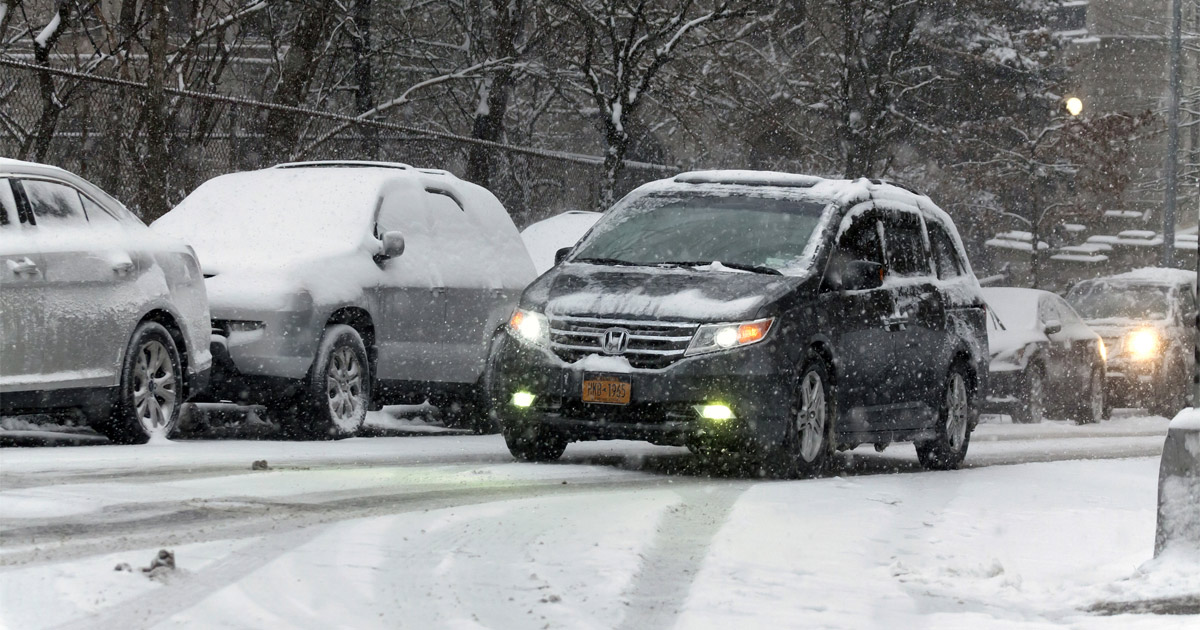Health and safety hazards are always present; however, winter brings unique dangers. When ice and cold weather impact a worker’s environment, it can present challenges to a person’s health and safety. This means a higher likelihood of illnesses, injuries, and accidents. During winter, both employers and employees should take proactive steps to avoid an injury or illness. If an employee is injured on the job, they are entitled to workers’ compensation benefits. This helps cover expenses related to the injury, such as medical bills and lost wages.
What are Dangerous Winter Work Hazards?
Although all jobs have hazards, outdoor workers have a higher likelihood of becoming injured or ill. These hazards worsen in winter when the weather is cold and unpredictable. Some hazards employees might face include cold stress, slip and fall injuries, winter driving, shoveling snow, and facing damaged power lines. Workers in the following fields should stay especially alert:
- Roofers
- Traffic workers
- Commercial drivers
- Construction workers
Risk of Hypothermia
An employee exposed to freezing temperatures for a prolonged period is at risk of hypothermia. A person develops hypothermia when their body loses heat faster than it is produced. This can lead to dangerous symptoms and even death if it is not caught quickly. Early signs of hypothermia include the following:
- Shivering
- Fatigue
- Confusion
- Loss of coordination
To avoid the danger of hypothermia, both employers and workers should have training on how to spot the condition. If an individual is displaying signs, they should immediately contact a supervisor and seek medical attention. Removing wet clothes and being in a warm room can help an individual recover from hypothermia.
Slip and Fall Injuries
Outdoor workers are often at risk for slip and fall injuries as they are more prone to walk on uneven surfaces and carry heavy objects, putting them at risk of falling. This risk often worsens during the winter months, putting employees at a higher risk for an injury. Snow and ice can make a surface slippery, putting workers at risk. Whether a worker is working outside, or they are tracking snow and ice in a building, a slip and fall injury is a likely hazard for employees. Slip and fall injuries can lead to severe injury or even death.
To avoid a slip and fall injury, employers should ensure that parking lots and walkways are clear of ice and snow. Employees should also be prepared for slippery surfaces by wearing protective shoes. Shoes that are insulated and have rubber soles can help avoid a slip and fall event.
Working with Heights
Roofers and others who work around heights must stay cautious in cold weather. Those who work around heights already have a dangerous job. However, snow and ice make this job even more challenging. A roof may be unsafe if snow weighs it down. Similarly, employees have a higher chance of slipping when snow and ice are involved. To avoid this, workers should always wear proper equipment, including non-slip safety boots or aerial lifts. If the weather is truly dangerous, the employee should also consider moving the work date, if possible.
Driving in Winter Weather
Driving is already a dangerous task; however, the winter weather makes it even more so. This is because driving on icy roads can pose a hazard for workers. In fact, studies found that 24 percent of all weather-related car accidents result from icy conditions. This puts commercial drivers at a higher risk for significant injuries, including spinal cord injuries. Some accidents even lead to death.
To avoid accidents, commercial drivers should check the weather before leaving the house. They should also routinely check their brakes to ensure that they can stop if ice leads them to slide. Packing a winter survival kit is crucial in case of an emergency.
Snow Removal
Snow removal from parking lots is crucial in helping prevent slip and fall injuries. However, snow removal itself poses a hazard to employees. Whether they are shoveling or using power tools, it is crucial that employees remain cautious while removing snow and ice.
Shoveling snow is a strenuous and exhausting task. Shoveling often takes hours and can put workers at risk for back injuries, dehydration, and even heart attacks. Since snow often indicates cold weather, many employees are also subject to freezing temperatures. This can put them at risk for hypothermia, especially if they are shoveling for prolonged periods.
Power tools are easier on the body. However, they are dangerous if handled incorrectly. Employers should ensure that workers know how to operate equipment, such as snow blowers, before use. They should also check tools to determine if they are safe to use. If the employee is not trained, it could lead to electric shock or even amputations.
Employers should train their workers on proper snow removal techniques, including how to operate machinery and how to shovel safely. To avoid injury, workers should lift with their legs instead of their back, and push snow instead of lifting it. This helps to avoid fatigue and back injuries while shoveling.
Broken Power Lines
Downed power lines pose a risk for electrocution because the power line is likely still energized. In order to avoid an electrocution, only qualified workers should handle the broken line. During the winter, however, this is often more difficult. Those who deal with broken power lines often use special tools to avoid electrocution. However, moisture from snow can reduce the efficiency of these safety tools, which often puts workers at a higher risk of electrocution from power lines. If a broken power line is around a fallen tree, employees should report it immediately to a trained electrical worker.
What Should I Do If I am Injured on the Job?
If an employer or insurance company makes it difficult for a worker to obtain their entitled workers’ compensation benefits, they should contact a workers’ compensation lawyer. In New Jersey, all employers should have workers’ compensation insurance. This covers any injuries that may occur while on the job. However, some insurance companies try to shift the blame on the worker. This can make it difficult for an employee to receive benefits. Workers’ compensation lawyers can help a client obtain benefits for expenses, including medical bills and lost wages.
South Jersey Workers’ Compensation Lawyers at Pietras Saracino Smith & Meeks, LLP Help Employees Facing Work-Related Injuries
If you or a loved one is suffering from work-related injuries or illnesses, contact the South Jersey workers’ compensation lawyers at Pietras Saracino Smith & Meeks, LLP. We understand the challenges of a work-related injury on an employee and their family. Call us today at 856-761-3773 or contact us online for a free consultation. Located in Cherry Hill, New Jersey, we represent workers throughout South Jersey, including Camden, Cinnaminson, Delran, Maple Shade, and Pennsauken.













